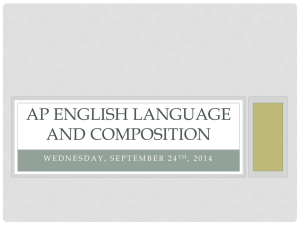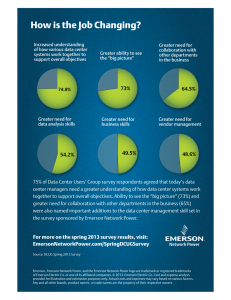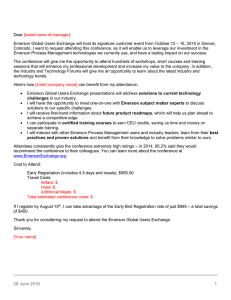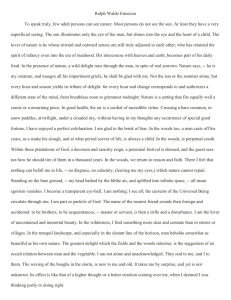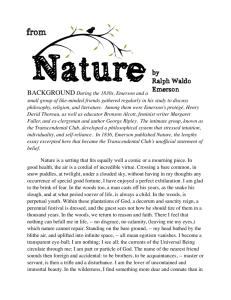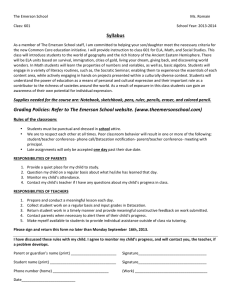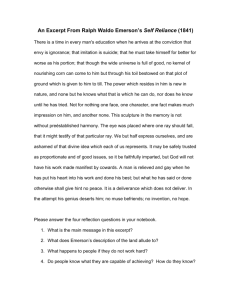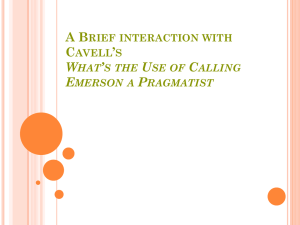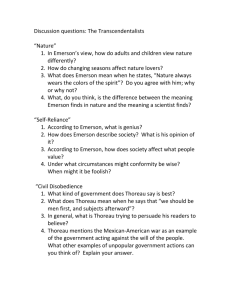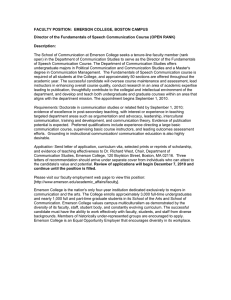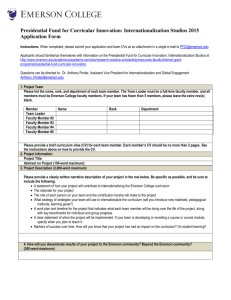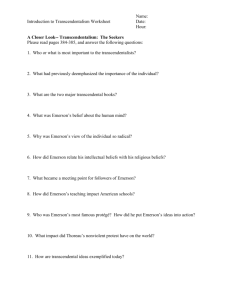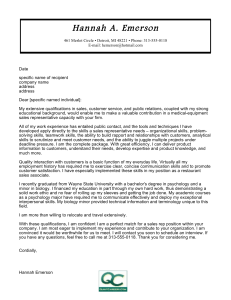Emerson Quotes
advertisement
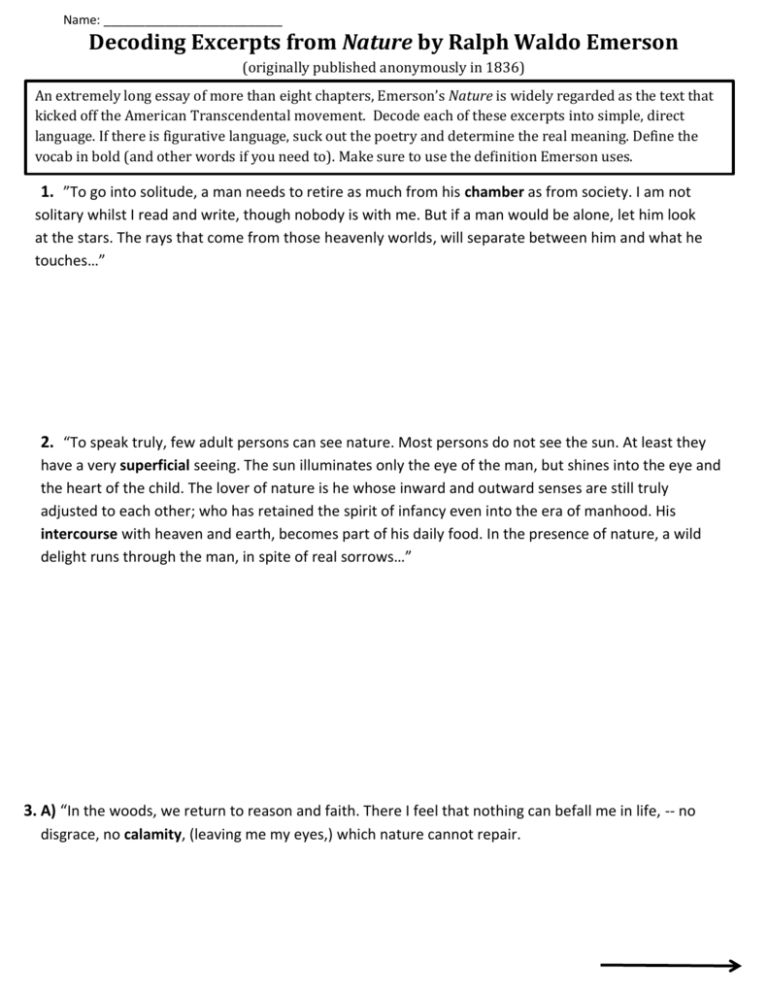
Name: __________________________ Decoding Excerpts from Nature by Ralph Waldo Emerson (originally published anonymously in 1836) An extremely long essay of more than eight chapters, Emerson’s Nature is widely regarded as the text that kicked off the American Transcendental movement. Decode each of these excerpts into simple, direct language. If there is figurative language, suck out the poetry and determine the real meaning. Define the vocab in bold (and other words if you need to). Make sure to use the definition Emerson uses. 1. ”To go into solitude, a man needs to retire as much from his chamber as from society. I am not solitary whilst I read and write, though nobody is with me. But if a man would be alone, let him look at the stars. The rays that come from those heavenly worlds, will separate between him and what he touches…” 2. “To speak truly, few adult persons can see nature. Most persons do not see the sun. At least they have a very superficial seeing. The sun illuminates only the eye of the man, but shines into the eye and the heart of the child. The lover of nature is he whose inward and outward senses are still truly adjusted to each other; who has retained the spirit of infancy even into the era of manhood. His intercourse with heaven and earth, becomes part of his daily food. In the presence of nature, a wild delight runs through the man, in spite of real sorrows…” 3. A) “In the woods, we return to reason and faith. There I feel that nothing can befall me in life, -- no disgrace, no calamity, (leaving me my eyes,) which nature cannot repair. B) Standing on the bare ground, -- my head bathed by the blithe air, and uplifted into infinite space, -- all mean egotism vanishes. I become a transparent eye-ball; I am nothing; I see all; the currents of the Universal Being circulate through me; I am part or particle of God. Emerson’s own sketch, illustrating what it means to become a “transparent eyeball” C) The name of the nearest friend sounds then foreign and accidental: to be brothers, to be acquaintances,--master or servant, is then a trifle and a disturbance. I am the lover of uncontained and immortal beauty. In the wilderness, I find something more dear and connate (agreeable) than in streets of villages… ” 4) ”For, nature is not always tricked in holiday attire, but the same scene which yesterday breathed perfume and glittered as for the frolic of the nymphs, is overspread with melancholy today. Nature always wears the colors of the spirit. To a man laboring under calamity, the heat of his own fire hath sadness in it. Then, there is a kind of contempt of the landscape felt by him who has just lost by death a dear friend…”

